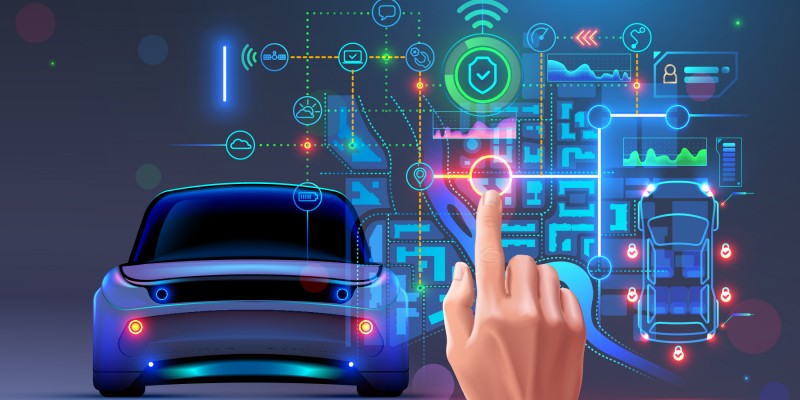
In the rapidly evolving landscape of modern automobiles, cutting-edge technology has transformed our driving experience, making cars smarter and more connected than ever before. However, with the integration of sophisticated software and communication systems, the automotive industry faces a daunting challenge: cybersecurity. The growing threat of cyber attacks on vehicles has underscored the critical importance of protecting automobiles from digital intruders. In this article, we will discuss the importance of cybersecurity in automobiles, the potential effects of neglecting this aspect, and the concerted efforts being made to strengthen the safety of our rides.
Safety of drivers and passengers: Safety of drivers and passengers is paramount in any vehicle. Today's connected cars have become a confluence of electronic control units (ECUs) managing various systems from airbags and brakes to infotainment and navigation. Cyber attacks on these ECUs can compromise critical security features, leading to accidents and potential loss of life. In this context, highlighting the importance of cyber security, the need for a robust defence system against malicious intrusions has been emphasized.
Protection of data privacy: As vehicles evolve into mobile data centers, they collect a wide amount of personal and sensitive information about drivers and passengers. Data related to driving habits, location history and personal preferences are valuable assets for cyber attackers seeking unauthorized access. Ensuring data privacy is important to protect individuals from identity theft, financial fraud, and aggressive surveillance. Implementing robust cybersecurity measures guarantees that sensitive information remains confidential and secure.
Preventing remote control attacks: The advent of connected cars has opened up new avenues for cyber attackers to remotely control vehicle tasks. With the ability to manipulate critical systems such as acceleration, braking and steering, cybercriminals can take full control of the car, putting people's lives on the road at risk. Implementing stringent cybersecurity protocols has become an imperative requirement to thwart these potential remote control attacks.
Combating software vulnerabilities: Since modern vehicles rely heavily on software to manage their complex functionalities, software vulnerabilities pose a significant threat. Cyber attackers can exploit these vulnerabilities to insert malicious code, making unauthorized access to vehicle systems possible. Regular software updates and security patches are essential to strengthen automobiles against these potential threats.
Over-the-air (OTA) update security: While OTA updates facilitate software updates and adding new features remotely, they also present potential security risks. A compromised OTA update channel can be used by attackers to deliver harmful software to the vehicle's system. It is important to ensure the safety and integrity of OTA updates to maintain consumers' trust in connected car technologies.
Collaborative approach: A collaborative approach is needed to tackle cybersecurity challenges in the automotive industry. Automakers, technology companies, cybersecurity experts and regulatory bodies should work together to establish standardized security protocols and share threat intelligence. Collective efforts in research and development can lead to a more comprehensive defense against cyber threats.
Aurora to Raise Private Shares for New Autonomous Upgradation Trucking Business
Brazilian Aircraft to take Public Transport to the Sky by 2026
Tech Marvels: The Astounding Discoveries Shaping Our Tomorrow